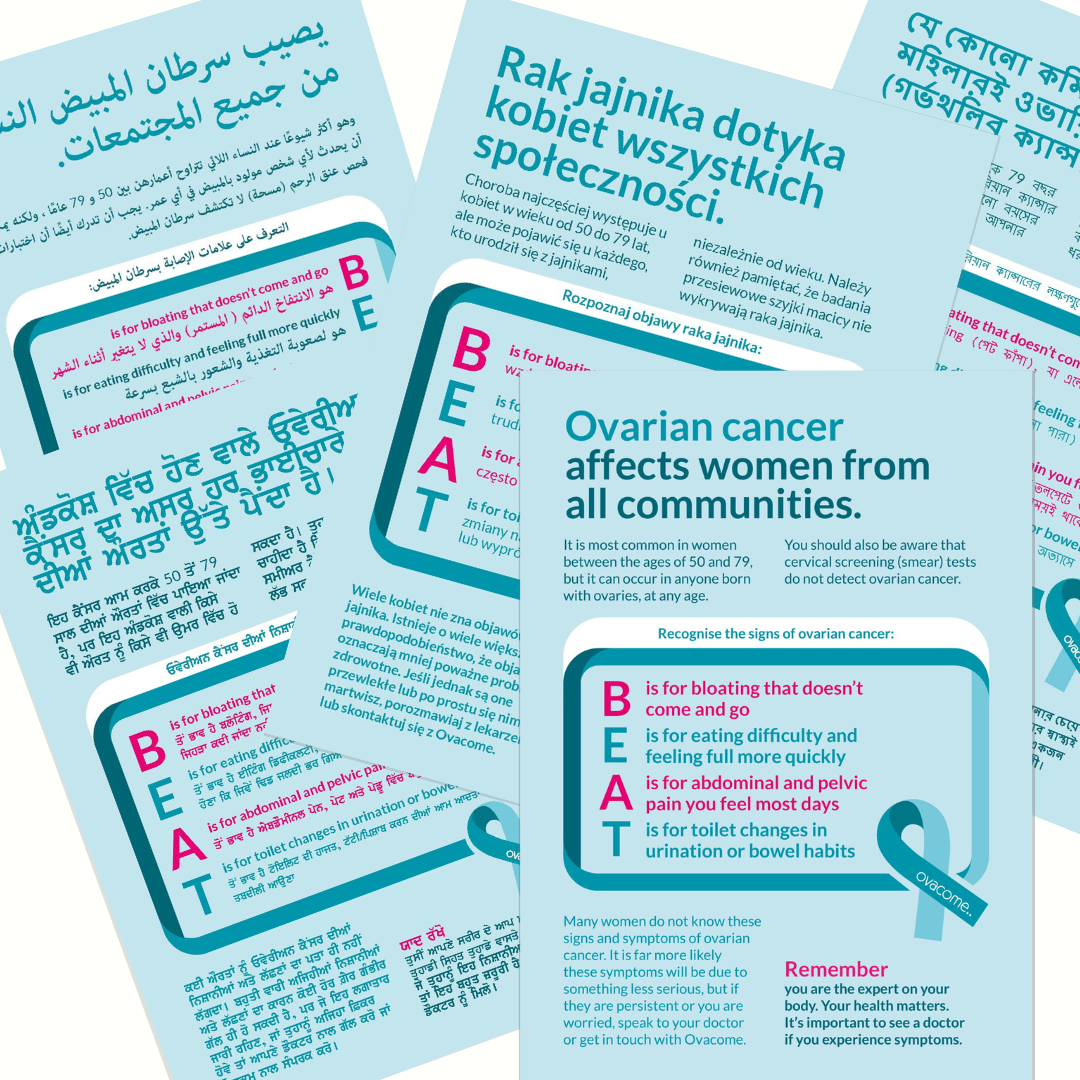Symptoms
Symptoms of ovarian cancer
Ovarian cancers can be hard to diagnose because the symptoms can be similar to more common and less serious conditions. It is sometimes mistaken for irritable bowel syndrome although IBS rarely occurs for the first time in those aged over 50.
The most common symptoms of ovarian cancer are:
- Persistent bloating of the abdomen.
- Difficulty eating and feeling full quickly.
- Persistent abdominal and pelvic pain.
- Changes in urination or bowel habit.
.Other symptoms can include:
- Extreme tiredness or fatigue.
- Vaginal bleeding.
- Weight loss.

Speak to our support line
Do you have questions about ovarian cancer or your diagnosis?
Our support line is here:
Monday - Friday 10am-5pm.
Call 0800 008 7054 or email support@ovacome.org.uk
If you persistently exhibit these symptoms, it is worth contacting your GP to get tested. You can find out more about testing for ovarian cancer here.
If you would like to raise awareness of these symptoms, Ovacome can provide you with free materials to help you do so. You can find out more about this here.
Symptoms information in other languages
We have ovarian cancer signs and symptoms information, videos and resources in Arabic, Bengali, Chinese, Gujarati, Hindi, Polish, Punjabi, Romanian, Slovak, Urdu and Welsh.

Symptom tracker
The Ovacome Symptom Diary has been verified by the head of our Expert Advisory Panel, Professor Sean Kehoe.
Our B.E.A.T. symptom diary allows you to keep a record of your symptoms. This can help you to discuss how you are feeling with your doctor, who can then decide if tests or scans are necessary.
Remember:
- Symptoms of ovarian cancer can vary from person to person.
- Although ovarian cancer can occur at any age, it mostly occurs in people over the age of 50. If you have a strong family history of breast or ovarian cancer you may be more at risk.
- Cervical screening (smear test) does not detect ovarian cancer.
- If you have any of the symptoms and they are new and persistent, tell your doctor.
If you would like us to send you a printed version of the symptom diary in the post, call 0800 008 7054 or email support@ovacome.org.uk
Watch Recognise the signs and symptoms of ovarian cancer

Did you find this page helpful?
We welcome your feedback. If you have any comments or suggestions, please email r.grigg@ovacome.org.uk or call 0207 299 6653.
Get support
Ovacome is the UK 's national ovarian cancer support charity. We've been providing emotional support and personalised, expert information since 1996. Contact our support line by phone, email or text if you have questions about a diagnosis, or if you just want to talk things through.
We support anyone affected by ovarian cancer, including family members, carers, those with an inherited risk, and health professionals working in the field.
Ovacome has 50 information booklets on a variety of topics about ovarian cancer.
Become part of the Ovacome community
Our members are at the heart of everything we do. There’s no cost to membership. Be the first to hear about Ovacome news and join a friendly, supportive community, all working together to promote knowledge and support others.





